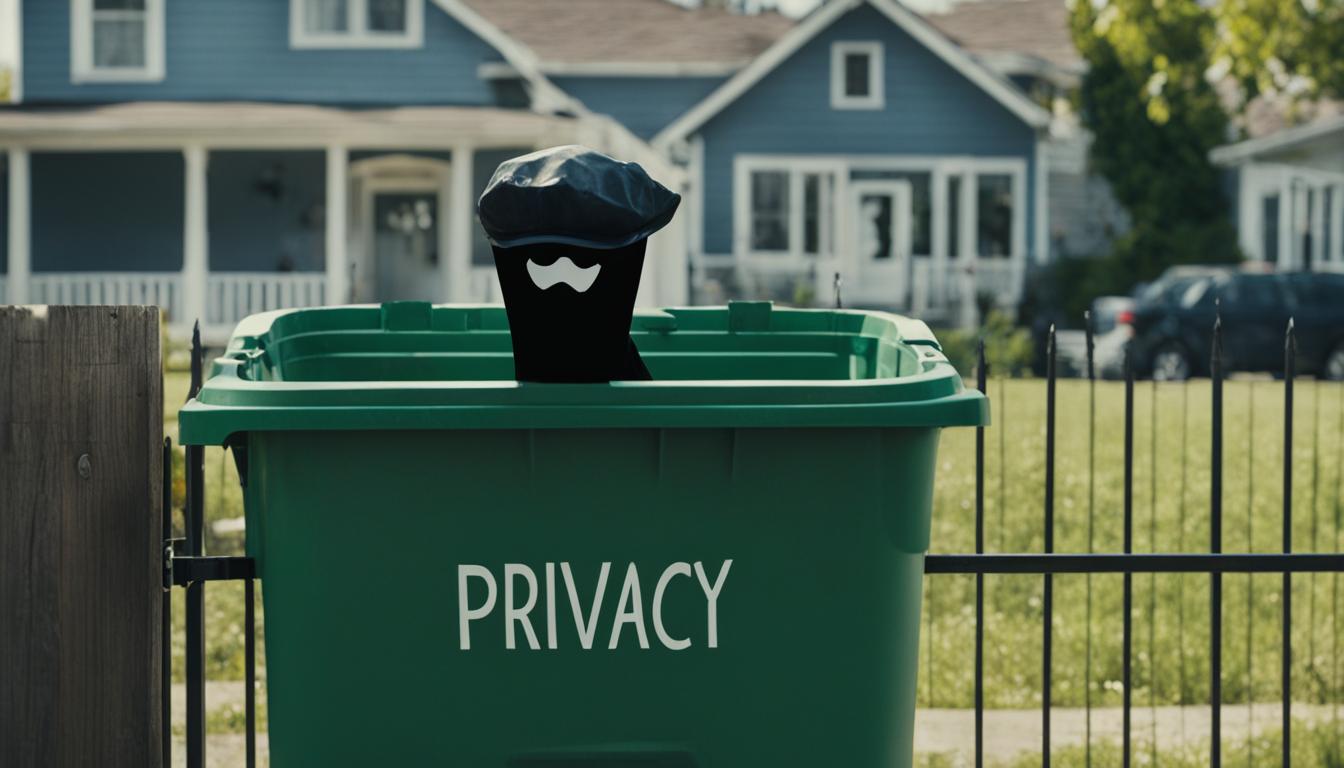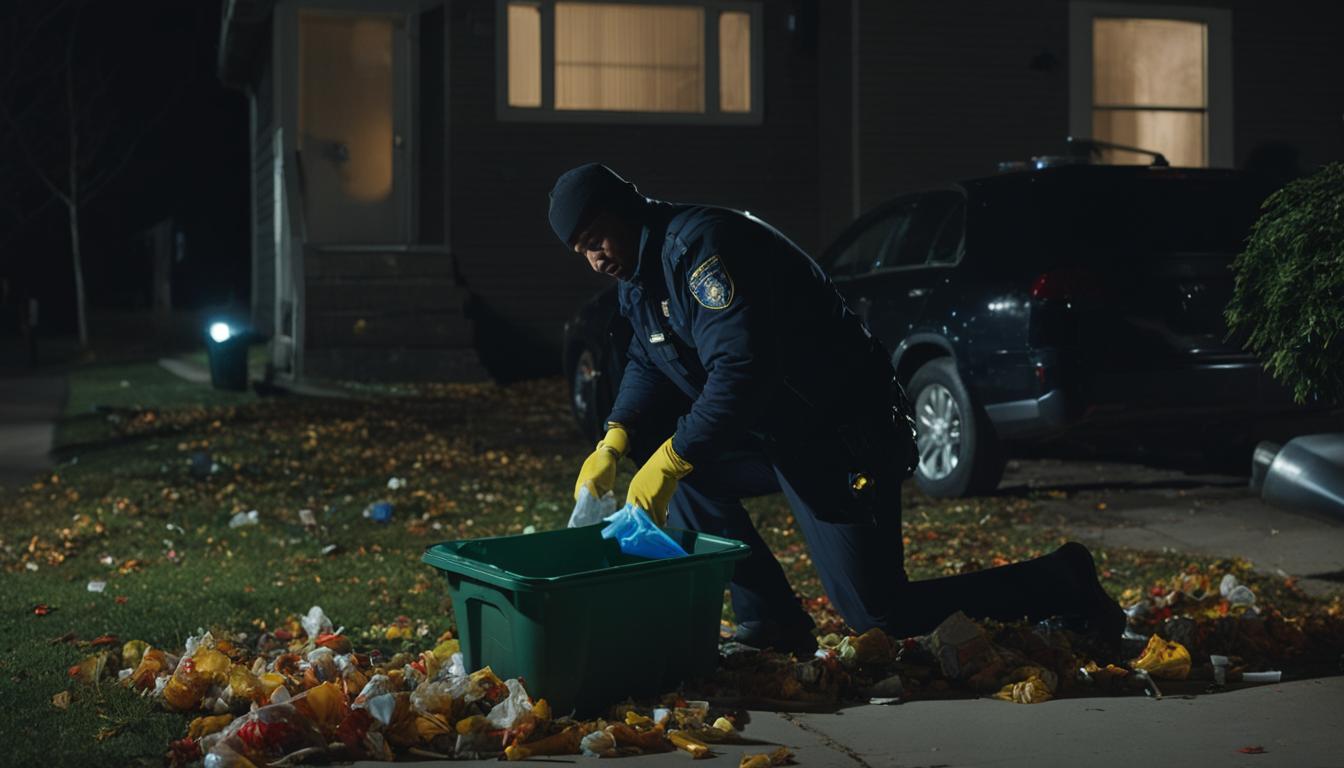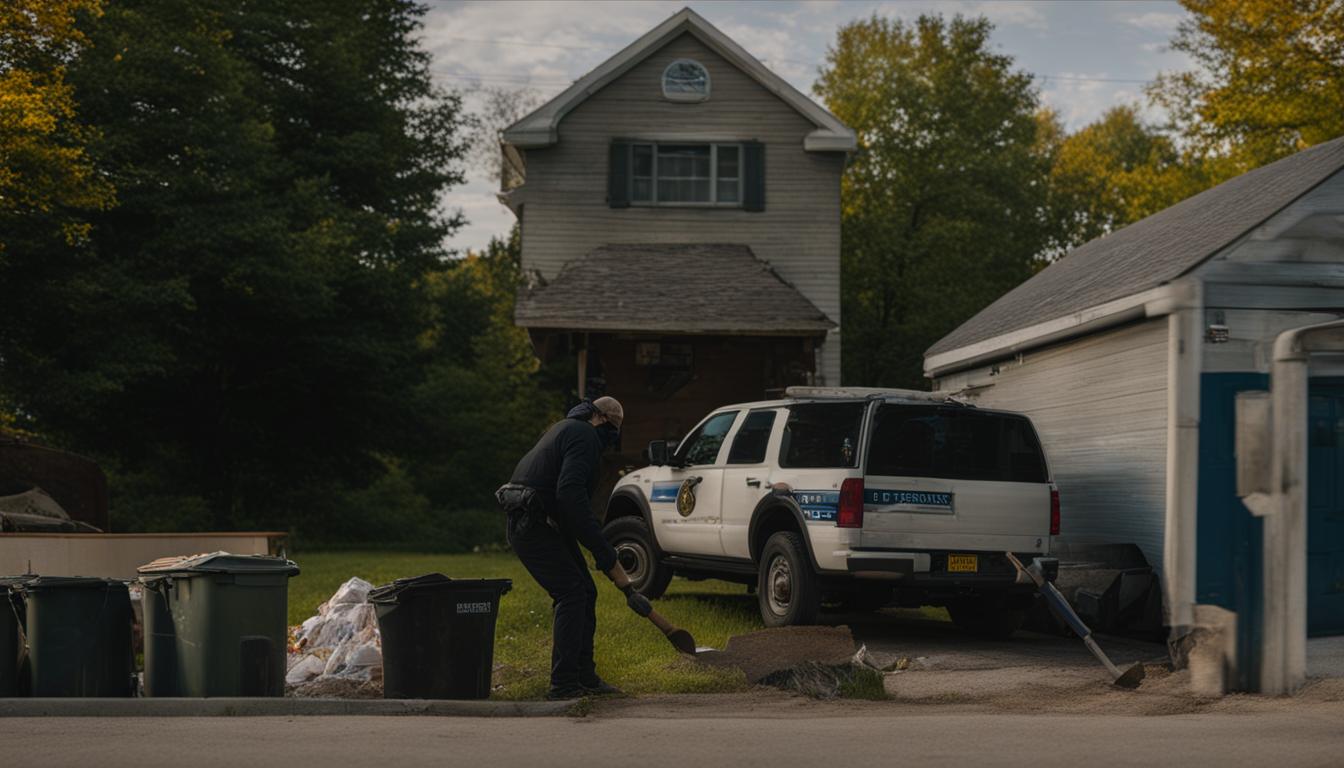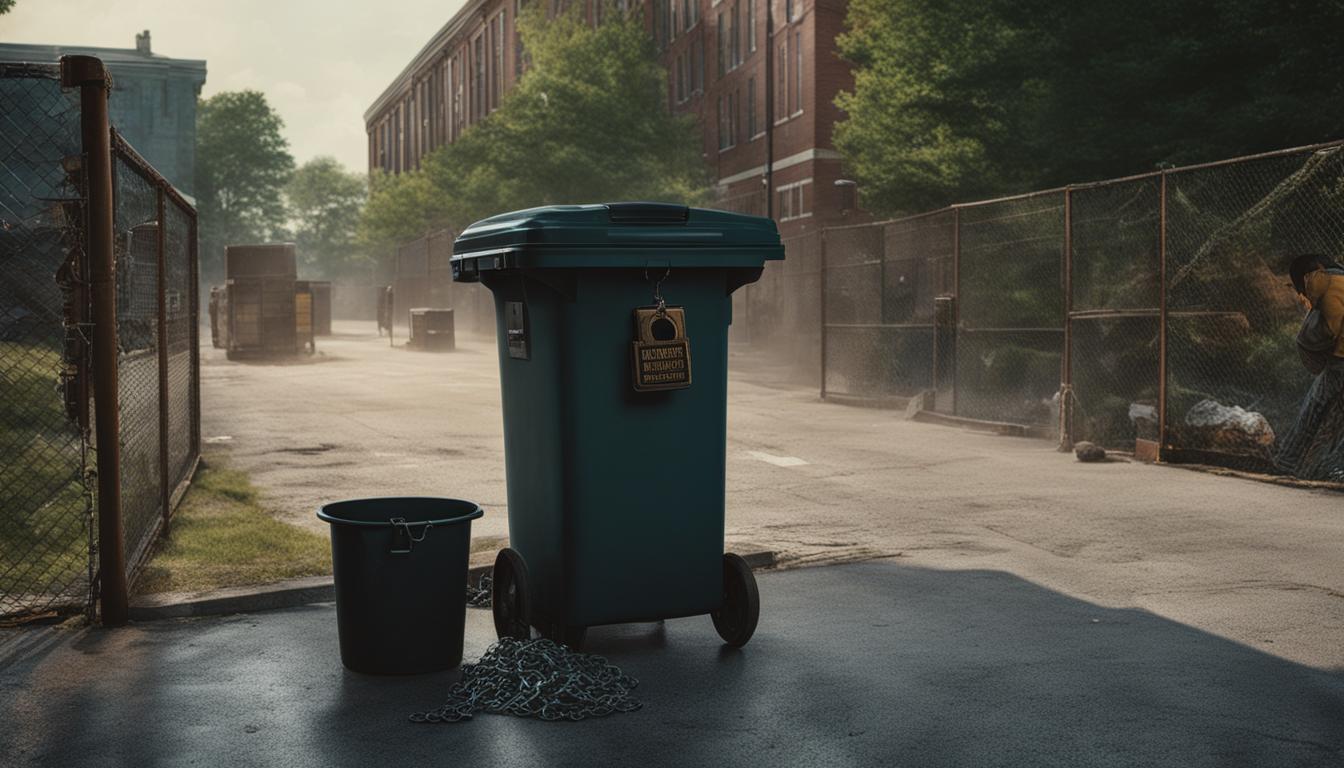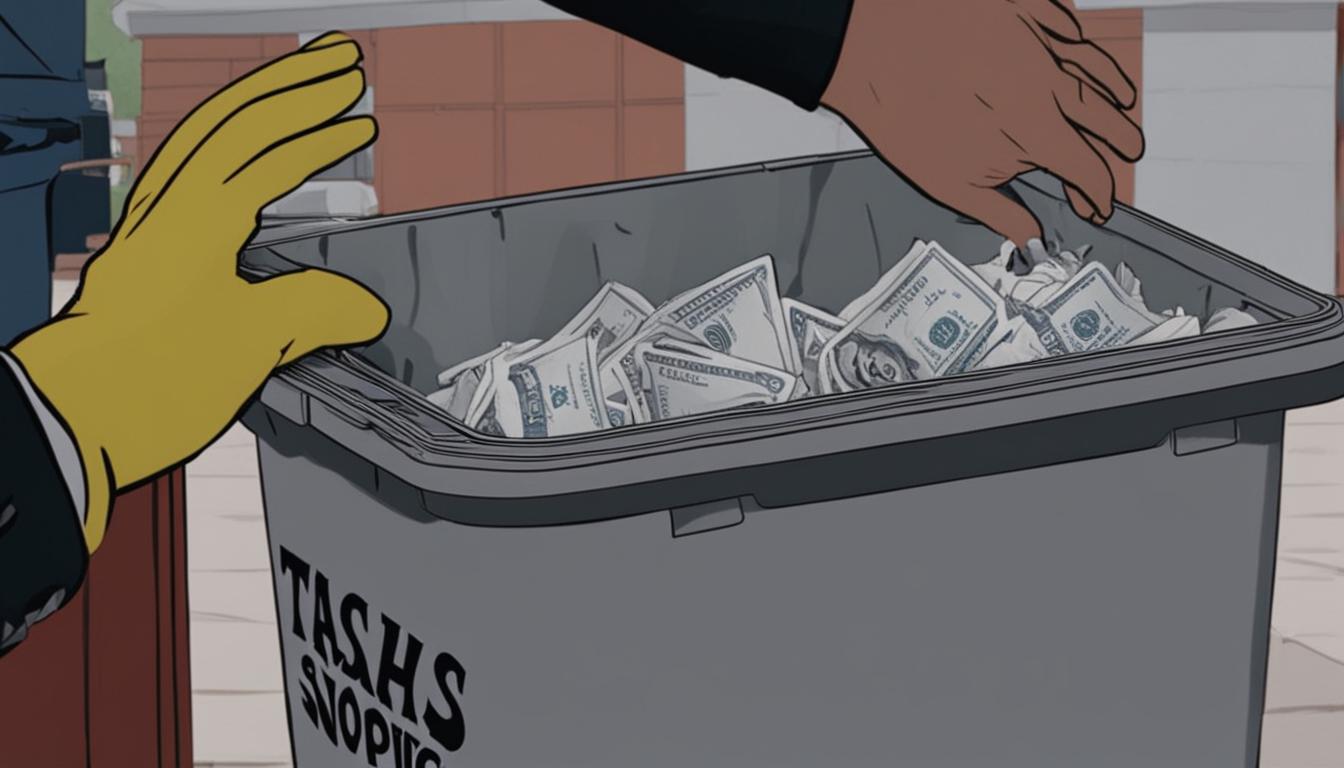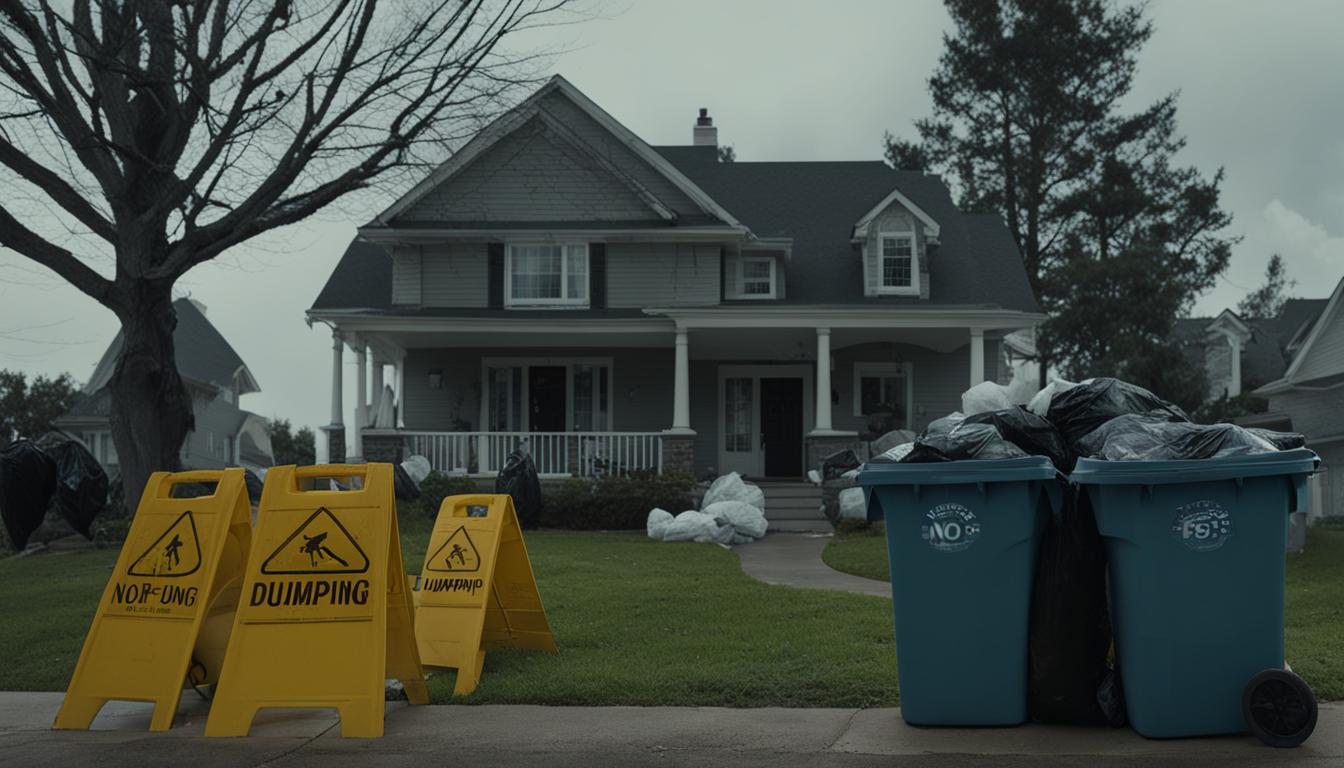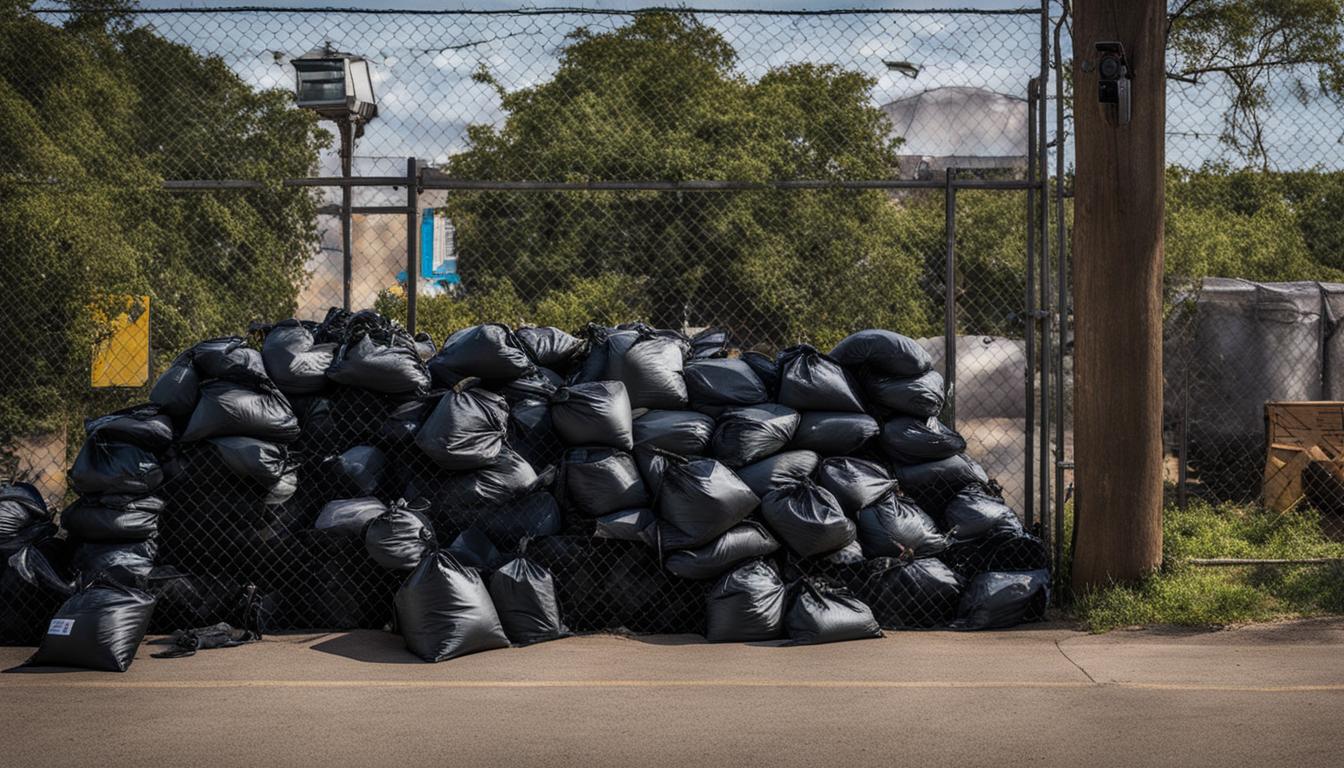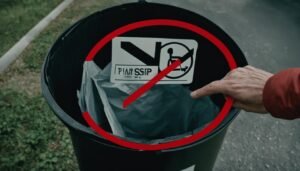Disclosure: This Post Contains Affiliate Links; We earn a commission on purchases.
When it comes to the disposal of trash and personal information, many Louisianaians are concerned about their privacy rights and the potential illegality of unauthorized access to their garbage. Understanding the laws surrounding dumpster diving and the protection of personal information is important for residents to safeguard their privacy.
Under Louisiana law, it is illegal to dispose or permit the disposal of litter in public places, private property not owned by the individual, or rural areas. This includes unauthorized dumping of trash into someone else’s dumpster. Violators may face significant fines, community service, and even suspension of their driver’s license.
However, dumpster diving, the act of searching through someone else’s trash for discarded items, is not explicitly prohibited in Louisiana. While privacy and trespassing laws still apply, individuals can technically engage in dumpster diving unless restricted by specific municipal regulations. It is crucial to understand the potential risks and considerations associated with this practice.
Key Takeaways:
- Disposing of litter on public places or private property without permission is illegal in Louisiana.
- Dumpster diving is technically legal in Louisiana, unless restricted by specific municipal regulations.
- Dumpster diving poses privacy risks, including the exposure of personal information that can be used for identity theft.
- Property owners have legal rights to prevent unauthorized access to their trash.
- Recyclables placed on the curb are considered public domain and can be searched or taken by anyone, including the police.
Understanding Dumpster Diving Laws in Louisiana
Dumpster diving, the act of searching through someone else’s trash for discarded items, is technically legal in Louisiana unless restricted by a specific municipality. While privacy and trespassing laws still apply, dumpster diving is not explicitly prohibited in public places. However, it is important to note that any trash placed on the curb before being picked up by trash collectors is considered public domain.
When it comes to the legality of dumpster diving, Louisiana law focuses more on the disposal of trash rather than the act of scavenging through it. Laws pertaining to littering and illegal dumping aim to keep public places and private properties clean and free from waste. If you are dumpster diving, it is crucial to understand your rights and responsibilities to avoid any legal complications.
While dumpster diving is generally allowed in public spaces, such as commercial areas or apartment complexes, it is important to respect private property rights. Trespassing on private property with the intent to retrieve discarded items without permission is illegal and may result in legal consequences. Property owners have the right to protect their privacy and prevent unauthorized access to their trash.
Specific Municipal Restrictions
Although dumpster diving is generally permitted in Louisiana, certain municipalities may enforce specific restrictions or regulations. It is essential to familiarize yourself with the laws of your specific locality to ensure compliance and avoid any potential legal issues. Municipal regulations may prohibit dumpster diving in certain areas or impose additional requirements for those engaging in this activity.
Some municipalities may require individuals to obtain written consent from property owners before engaging in dumpster diving activities. Failure to adhere to these regulations can result in penalties and criminal charges. It is advisable to conduct thorough research and consult local authorities to understand the dumpster diving regulations in your area.
Respect for Privacy and Responsibility
While dumpster diving may be legal in Louisiana, it is crucial to exercise respect for privacy and act responsibly when engaging in this activity. Remember that the contents of someone’s trash can contain personal and sensitive information. It is essential never to use any obtained information for malicious purposes or identity theft.
Dumpster diving can be an opportunity to reduce waste and find usable items, but it is crucial to always prioritize privacy and legality.
By being aware of the laws and regulations surrounding dumpster diving in Louisiana, you can make informed decisions and minimize the risk of legal consequences. Respecting private property rights, avoiding trespassing, and understanding the specific regulations in your municipality can help ensure a positive dumpster diving experience while staying within the boundaries of the law.
Risks and Considerations of Dumpster Diving
Dumpster diving, although legal in Louisiana under certain circumstances, carries various risks and considerations that individuals should be aware of. One significant risk is the potential exposure of personal information. When rifling through discarded items, such as garbage bags and containers, individuals searching for valuable or useful items may come across sensitive documents like mail, utility bills, credit card statements, and shopping receipts.
These seemingly insignificant pieces of trash can contain valuable personal information that can be exploited by individuals looking to commit identity theft. By gaining access to such documents, dumpster divers can acquire details that may compromise someone’s privacy and financial well-being. It is essential to be cautious and mindful of the information one throws away.
Protecting Personal Information
Properly disposing of personal information is crucial to safeguarding privacy and preventing identity theft. Here are a few recommendations:
- Shred Documents: Before discarding any documents containing sensitive information, such as social security numbers, bank statements, or medical records, it is advisable to shred them. This can make it much more difficult for dumpster divers to piece together the details necessary to commit identity theft.
- Maintain Privacy Expectations: Recognize that privacy expectations extend to your garbage. Treat your trash as an extension of your personal space and be mindful of what you dispose of, just as you would in your home.
- Secure Disposal Methods: Instead of merely putting sensitive documents in the trash, consider more secure methods of disposal. For example, some communities offer shredding events or secure document destruction services that ensure thorough destruction and protect personal information.
By taking these precautions, individuals can minimize the risks associated with dumpster diving and reduce the likelihood of their personal information falling into the wrong hands.
| Risks | Considerations |
|---|---|
| Potential exposure of personal information | Mindful disposal of sensitive documents |
| Risk of identity theft | Shredding important papers before discarding them |
| Compromising privacy expectations | Recognizing trash as an extension of personal space |
It is important to be cautious when engaging in dumpster diving activities and to prioritize protecting personal information and privacy.
Legal Rights and Protections for Property Owners
Property owners have important legal rights and protections when it comes to individuals going through their trash. Dumpster diving on private property without permission is considered trespassing and is illegal. Property owners can take specific measures to safeguard their privacy and deter unwanted intrusions.
Privacy Rights and Trespassing
In order to protect their privacy, property owners in the United States have legal rights that prevent others from entering their private property without permission. This extends to dumpster diving, as individuals rummaging through someone else’s garbage infringe upon the property owner’s privacy rights. Trespassing laws apply in these situations, and violators can face legal consequences.
Posting Signs and Using Locks
Property owners can further protect their privacy rights by posting signs or using locks to deter individuals from going through their trash without permission. These signs serve as a visible reminder that the property owner does not consent to others accessing their garbage. Additionally, locks can be used to secure dumpsters and prevent unauthorized entry.
“By posting signs and using locks, property owners can assert their legal rights and discourage unwanted trespassers.”
Proper signage and secure locks send a clear message that unauthorized access is prohibited, helping property owners maintain their privacy and property rights.
Legal Rights and Protections for Property Owners
| Legal Rights | Protections |
|---|---|
| Privacy rights | Deter unauthorized access |
| Trespassing laws | Legal consequences for violators |
| Posting signs | Visible indication of non-consent |
| Using locks | Securing dumpsters and preventing entry |
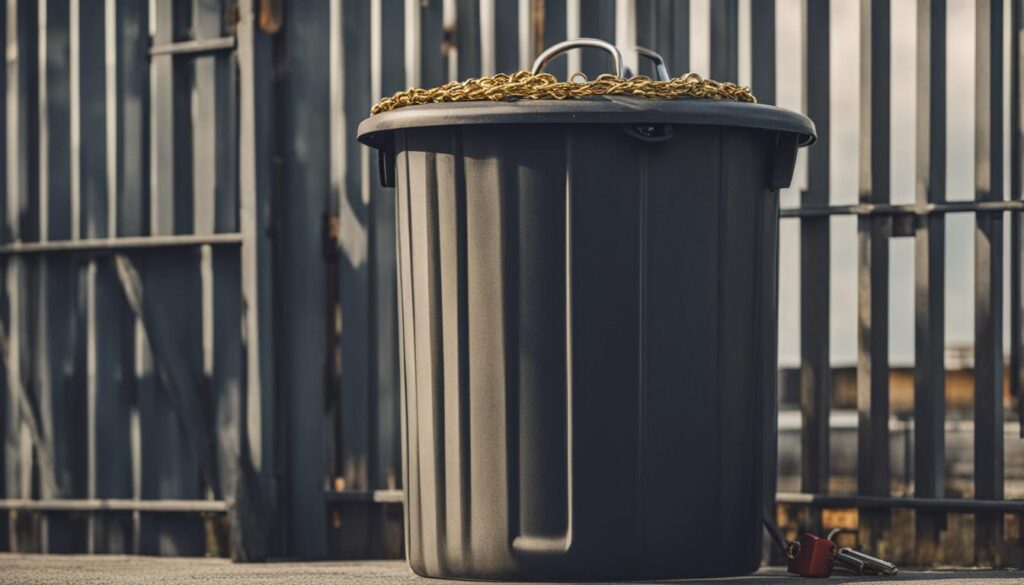
Property owners have the right to protect their privacy and maintain control over their private property. Understanding their legal rights and the available protections allows property owners to safeguard their privacy and deter unauthorized access to their trash.
How Dumpster Diving Laws Apply to Recyclables
When it comes to dumpster diving, the legality extends to various types of discarded items, including recyclables. However, it is essential to understand the nuances and limitations of dumpster diving laws, particularly concerning recycling practices.
In most cases, when recyclables are placed on the curb for pick-up, they enter what is known as the public domain. This means that anyone, including the police and waste removal employees, has the right to search or take these recyclables. From an enforcement perspective, this helps prevent valuable items from ending up in landfills unnecessarily.
It is crucial to note that dumpster diving in recycling bins, especially those situated on private property, can be considered theft. Engaging in such activities may result in legal consequences, as recyclables on private property are not automatically considered part of the public domain. It is essential to respect private property rights and be aware of the potential legal ramifications.
To further comprehend the implications of recycling-related dumpster diving, let’s take a look at the following table:
| Recycling Location | Legal Status |
|---|---|
| Curbside Recycling Bins – Public Property | In the public domain and accessible for searching. |
| Curbside Recycling Bins – Private Property | Considered private property, and diving into these bins may be seen as theft. |
| Community Recycling Centers | Varies based on the specific regulations of the recycling center. Some may allow scavenging, while others may prohibit it. |
As the table shows, the legality of dumpster diving for recyclables differs depending on the location and the ownership of the recycling bins. It is crucial to be aware of the laws and regulations specific to your area to avoid any legal issues.
By understanding these nuances, individuals can make well-informed decisions regarding dumpster diving for recyclables. Respecting private property while taking advantage of public domain opportunities can help strike a balance between legal compliance and environmental consciousness.
Protecting Yourself and Your Information
To protect yourself and your personal information, it is important to take precautions when disposing of sensitive materials. Shredding documents that contain personal details, such as social security numbers and bank statements, can prevent them from falling into the wrong hands. Additionally, being mindful of when and where you dispose of your trash can help minimize the risk of identity theft.
Identity theft has become a prevalent issue in today’s digital age, and criminals can use discarded documents to steal your personal information and commit fraudulent activities. Secure disposal methods, such as shredding, provide an extra layer of protection by rendering the information unreadable and practically unusable for potential identity thieves.
Did you know?
Identity theft occurs when someone uses your personal information without your consent to commit fraud or other illegal activities.
Secure Disposal Methods
One effective method of secure disposal is shredding documents that contain personal information. Investing in a reliable paper shredder enables you to destroy sensitive papers before discarding them. It is crucial to focus on shredding documents that contain personal identifiers, such as:
- Social security numbers
- Bank account statements
- Credit card statements
- Utility bills
- Medical records
By shredding these types of documents, you significantly reduce the risk of identity theft and safeguard your personal information.
Mindful Trash Disposal
In addition to shredding sensitive documents, being mindful of when and where you dispose of your trash can help protect your personal information. Here are some tips to follow:
- Dispose of your trash regularly: Accumulating a large amount of trash over time increases the risk of someone obtaining your personal information.
- Avoid putting sensitive documents in the regular trash: Separate them and shred them before disposal.
- Consider using a secure disposal service: Companies that specialize in secure disposal can provide you with the peace of mind that your personal information is being handled and disposed of properly.
- Be cautious with digital devices: Deleting personal information from digital devices, such as smartphones and laptops, before disposing of them is crucial to prevent unauthorized access.
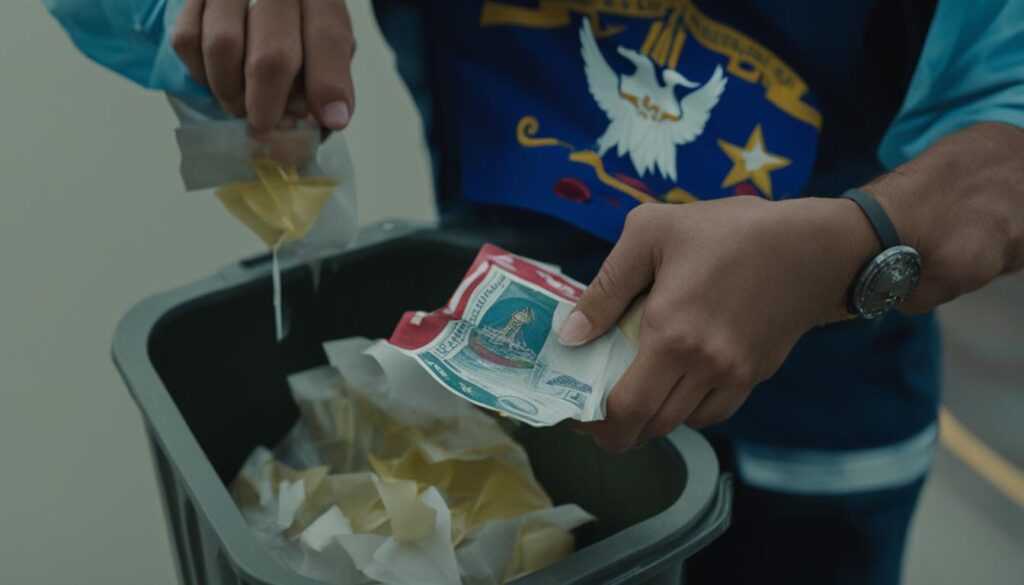
Conclusion
In conclusion, dumpster diving is a legal activity in Louisiana, but it comes with certain limitations and considerations. It is important to understand the legality, privacy rights, and potential risks associated with dumpster diving before engaging in this activity. While Louisiana law does not explicitly prohibit dumpster diving in public places, it is essential to be mindful of trespassing and privacy laws.
Although dumpster diving can yield valuable items and resources, such as discarded furniture or food, it also poses privacy risks. Personal information, such as bank statements and credit card receipts, could be found in trash bins and potentially used for identity theft. To protect yourself, it’s crucial to be cautious about the information you dispose of and take steps to securely dispose of sensitive documents.
Additionally, property owners have legal rights and protections when it comes to individuals going through their trash. Dumpster diving on private property without permission is illegal and can lead to legal consequences. Property owners can take measures to deter dumpster divers, such as posting signs or using locks on their trash bins.
Ultimately, understanding the laws and regulations in your specific municipality and prioritizing the protection of personal information are key when engaging in dumpster diving. By being knowledgeable and taking appropriate precautions, individuals can make informed decisions regarding their trash disposal while respecting privacy rights and adhering to Louisiana law.
Source Links
- https://residentnews.net/2020/04/02/is-it-legal-for-someone-to-go-through-your-trash/
- https://www.legalmatch.com/law-library/article/is-dumpster-diving-illegal.html
- https://k945.com/louisiana-trash/

Subscribe to Our Newsletter

